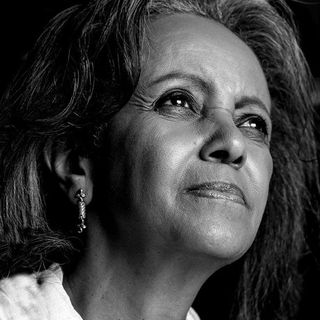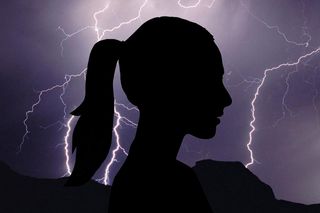
Our #MeToo Survey Suggests Many Feel Deep, Mixed Feelings About the Movement
Empowerment and unity were prevailing emotions, but self-reflection also stirred up complicated feelings.

In the four weeks since Mahima Kukreja tweeted an accusation against comedian Utsav Chakravarty on 3 October, India’s social media, as well as traditional media, have been flooded with stories of women’s harassment and assault, most often at the hands of men. Soon after the movement launched, The Swaddle opened a survey to hear from its readers — What were you thinking about #MeToo? How were you feeling about it? With responses from 700 people (nearly 100 of them men) there is much to share — and we’ll be doing just that throughout the upcoming week.
But first, the overwhelming response to the stories the movement has stirred up: many, often conflicting, emotions.
“Relieved, saddened, empowered, emboldened, overwhelmed, triggered, grateful, hopeful, more understood and more understanding… all of these emotions at the same time,” one respondent put it. These words, along with words like angry, frustrated, ashamed, disgusted, aware, confused, concerned, surprised, and unsurprised came up again and again in responses.
However, overwhelmingly from both men and women, was a sense of positivity, respect, and strength in numbers. “Alive and brave,” one person responded to the question “How have the #MeToo stories made you feel?” Similarly, “Acknowledged,” “Fearless,” “Bold.”
Solidarity was a big theme — many respondents reported feeling triggered and insecure, reminded of their own trauma or harassment in response to the #MeToo stories they had shared. (“It brought up some memories which I had suppressed. The stress and issues which started with those incidents stressed me out and I resigned. Thinking about working again and risking facing that is giving me nightmares.”)
Anger (“They’ve made me feel angry and at the same time, kind of victorious. Because naming and shaming has definitely led people in general sit up and take notice of things that would easily be dismissed as ‘this is normal’ earlier.”) and disgust (“Seeing people I’ve followed, being outed as predators is really disheartening”) were also common.
But far more — the vast majority of all respondents — expressed something like: “that there are so many like me and its ok to talk about it.” The idea that the time had come for women to speak and be heard was the largest, recurring emotional response to the #MeToo stories, with 41% of all respondents describing their emotions in such ways. “I felt a sense of connection with the victims and glad that they’re being given a safe place to share their stories. I even am thinking about confronting my abusers.”
“I wish the movement existed while I was growing up,” wrote another. “Things were different and I never could muster up the courage to speak about it.”
“The best thing to come out of MeToo is a sort of validation for me,” wrote another. “For every time I felt weird around a man, or every time someone told me to ‘relax, don’t make a big deal out of it,’ I know now I wasn’t. I know that what I felt was legit.”
“Honestly, to all women who’ve been able to come out and unmask the predators deserve a round of applause. This was long due,” wrote one male respondent.
“However,” he continued, “what saddens me is that I find a few girls are trying to bask in the glory of the movement and trivialise the gravity of [it].”
After anger, disgust and empowerment, this was the next largest emotional theme — waffling; a feeling like the intent of #MeToo is good, but that its execution was less than ideal. Several respondents, men and women, described at least some of the #MeToo stories they’d heard as “publicity stunts.”
“I am totally in agreement with the purpose of the movement but still skeptical about few Metoo stories, as they seem made up,” wrote one woman. About 3% of all respondents found the movement itself upsetting; the biggest criticisms were either patent disbelief of women’s assertions, a frustration that women didn’t address their harassment in the moment (“I feel if you are not comfortable in something, stop it there itself. No point discussing 10 years late. If that means you lose a job or promotion, so be it…”), or a feeling that the movement doesn’t incorporate the people who ‘really need it’ — the non-famous, the middle class, the marginalized: “Jst another story,” one repondent wrote about how she feels in response to #MeToo stories. “Coz dis is wht is happening wid every other girl. Jst coz few famous celebs open up doesn’t mean ordinary girls will b safe.”)
For some, the grey area of #MeToo has prompted a bit of an existential crisis: “Mostly confused about my feminist beliefs. I want to believe all women but am finding it difficult to do so.”
That kind of introspection was fairly common. Many respondents expressed that #MeToo stories had prompted some kind of surprise, new awareness, or self-reflection.
“It has made me realise how rampant sexual harrassment is in our society and I’m full of respect for all the women who shown courage by speaking up.”
“Its made me think and introspect. Maybe what I thought was ok wasnt for somebody else. It is important we respect everybodys thoughts and feelings and be more considerate”
“Repentant that I May have made jokes that were quite possibly sexist or insensitive to women or men in general.”
Ultimately, perhaps these two people put their realizations best:
“Its difficult to believe anyone at face value.”
“It makes one think about the definition of consent and safety. One may have agreed to be in a relationship but assault of any kind is never warranted. People assume that if a girl or boy says ‘yes’ to date, they are agreeing to potentionally being assaulted.”
It is difficult to take anyone and anything at face value — heroes turn out to be serial abusers; false accusations do get made (though they are a statistically tiny percentage of the total stories shared); fear for livelihood can be perceived as complicity or consent. If there’s anything #MeToo can do, it is to get us to push one layer deeper — to actually discuss instead of assume; to ask, instead of expect, to listen, instead of hear. What we arrive at may not make us feel good, but it may make us better, as a society and as individuals.
“I think rather than this #metoo, we can start a movement that asks if I have harassed or not,” wrote one repondent. “I bet no one w[ould pass].”
Related


Many Cases of Sexual Harassment Never Make it To Companies’ Internal Committees
